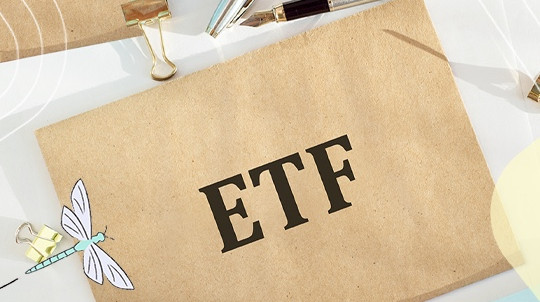Basically, ETFs are funds that are traded or exchanged to track a specific index. Instead of one stock, you get a bundle of assets that you can buy and sell during the market hours. However, just because ETFs are a great investment doesn’t mean all ETFs will make you money. Let’s take a look at some of the best Canadian ETFs and overall ETFs.
Investing in ETFs
In Canada, many people purchase ETFs as an alternative to mutual funds. This is because mutual funds often charge higher fees than ETFs. Mutual funds and ETFs are similar except for the fact that mutual funds have more complex structuring. This is why they are a bit cheaper. Depending on what you are looking for in an investment, there are plenty of ETFs that might be suited for you.
Different Types of ETFs
In Canada, there are over 700 different ETFs. These ETFs are broken down into different types:
- Equity ETFs
- Bond ETFs / Fixed Income ETFs
- Commodity ETFs
- Currency ETFs
- Specialty ETFs
- Factor ETFs
- Sustainable ETFs
- Asset Allocation ETFs (all-in-one ETFs)
There are even stocks ETFS. Each of these types of ETFs are all invested differently and will affect the cost of the ETF, the MER and the risk factor. When you are looking into purchasing an ETF it is important to look into what type of ETF it is as well as its individual characteristics.
Whether you are researching an ETF on your own, with one of the Canadian banks, or a private broker, you will be able to find the individual features of each ETF. It will show you what the ETF is made up of, its MER, its share price, where you can invest it as well as any other relevant information you may need. The type of ETF is relevant to these factors.
It’s also important to consider whether you’re going to get active ETFs or passive ETFs. Passive ETFs manage themselves, while active ETFs are bought and sold during the day. Passive ETFs tend to be more than active ETFs since they require less work.

What ETFs Should You Invest In?
Before you buy ETFs, whether these are Canadian ETFs, with Canadian ETF companies, or Canadian online brokers, it’s always important to do your research. You can find the cheapest ETFs, cash ETFs, ones in the financial and energy sectors, as well as other ETFs to help you diversify your investment portfolio since each investment account is different.
There are over 700 different ETFs in Canada. Depending on what you are looking for and where you live, you have plenty of choices. Let’s take a look at some of the best options in different categories for the top Canadian ETFs and top ETF companies.
Best Blackrock ETFs Canada
The iShares S&P TSX 60 Index ETF (UIX) was created by Blackrock. This ETF replicates the S&P/TSX index’s performance net of expenses. It is one of the most liquid, as well as the largest, ETFs in Canada. It has the instrument symbol UIX, which means it provides exposure to large companies in Canada. Fun fact, this ETF was established in 1990, making it the first ETF in the world.
Another ETF that is managed by Blackrock is the iShares Core Equity ETF Portfolio (EXQT). This is another fund that looks for long term capital growth. It invests primarily in ETFs that are managed by Blackrock Canada. It is monitored and rebalanced as needed. It also has a low MER of just 0.20% or $2.00 per $1000 invested.
Best Canadian Dividend ETF
In Canada, there are plenty of ETFs to choose from in this category, but currently one of the best Canadian dividend ETFs is iShares Canadian Financial Monthly Income ETF (TSE:FIE). This ETF doesn’t fully focus on the banking sector, it also focuses on some insurers and asset managers. Around ⅓ of this ETF is made up of preferred shares and bonds, the rest is Canadian equities.
The five holdings of this ETF are a Canadian preferred share ETF, a Canadian corporate ETF, Royal Bank, CIBC and Bank of Montreal.
Because of the preferred shares and bonds and equities split in this ETF, it is a less volatile ETF. This means you are more likely to earn money from this ETF. Right now, you can get a return of 5%, which is paid out on a monthly basis. It also has lower fees of 0.81%, equaling $8.10 for every $1,000 invested.
Best ETF for TFSA
If you are looking to invest your ETF into a TFSA, one of the best options for that is iShares S&P/TSX Capped Info Tech ETF (TSE: XIT). This is because a TFSA is tax-free, giving investors more of an incentive to go with a more aggressive investment. Less taxes means there is more wiggle room for loss and return.
That being said, this ETF has a turnover rate of 65%. It tracks the Capped Information Technology index and is meant for long term growth, which is another reason why it is a great candidate for investing in a TFSA.
While there aren’t a lot of large tech companies in Canada, this ETF is made up of some of the most successful ones. Over 50% of the ETF is made up of Shopify and Constellation Software. It also has CGI Inc, Open Text and Descartes Systems. These are just the top 5 out of a total of 30 holdings and are a big part of the reason that this fund has given an annualized return of 18.41% over the last 10 years. The fees on this ETF are only 0.61% or $6.10 for every $1000 invested.
Best Canadian Materials ETF
Just like with the other categories, there are so many ETFs to choose from. The iShares S&P/TSX Capped Materials Index ETF(XMA) is currently considered to be one of the best Canadian ETFs that holds materials stocks. This index looks to replicate the performance of the S&P/TSX Capped Materials Index. It has been around since 2005 and is meant for investors who are seeking long term growth.
While the management expense ratio isn’t as low as we have seen with some of the other ETFs, it is relatively low at 0.60% which is equal to $6.00 per $1000 invested. With the low investment costs it makes sense for investors but another reason investors choose this fund is because its targeted exposure is to Canadian mineral companies. This makes it low risk and, with 50 different holdings, it is meant for long term investors.
Best Vanguard ETFs Canada
With Vanguard, there are a ton of ETFs to choose from, but one of the best is the Vanguard Balanced ETF Portfolio (VBAL-T). Just like it sounds, this is a balanced portfolio, so it is great for investors looking for a moderate-risk portfolio. The split on this fund is 60/40, so 60% of its assets are equity, and the rest are fixed-income securities. Another great thing about this fund is its low management fees. They are at .24%, which equals $2.40 for every $1000 invested.
Best U.S. ETFs in Canada
Many Canadians believe that you can only invest in Canadian stocks and ETFs. That isn’t true. You can invest in US investments. You just might have to pay the US Dividend Withholding Tax. Some investments aren’t subject to this, though, for different reasons. Those are often the ones that investors like since there isn’t extra tax involved.
Keeping this in mind, one of the best U.S. ETFs in Canada, and one of the most recommended, would be the Horizons S&P 500 Index ETF (HXS). This fund has been around since 2010 and is managed by Horizons ETFs Management (Canada) Inc. That being said, the fund itself invests in public equity markets in the US, specifically the growth and value stock of large-cap companies (companies with market values between $10 billion and $200 billion). As mentioned in the name, it looks to track the S&P 500 index.
One of the reasons that Canadians choose to invest in this particular fund is because of the low management expense ratio (MER) of 0.10%, which is equal to $1.00 for every $1,000 invested. Another reason is that it is tax-efficient. This fund doesn’t receive distributions, so it isn’t subject to the US Dividend Withholding Tax.
Best International ETF in Canada
In Canada, there are a few international ETFs that are a good idea to invest in. That said, there is one that stands above the rest. This is the Vanguard FTSE Global All Cap ex Canada Index ETF (TSE: VXC)
The Vanguard FTSE Global All Cap ex Canada Index ETF tracks the performance of a broad global equities index. It focuses on developed and emerging markets. The distribution frequency on this ETF is quarterly, the MER is 0.22%, and Management fees are 0.20%.This fund has been around since June of 2014.
Best Canadian Equity ETFs
It’s no surprise that when we talk about the best Canadian equity ETFs, one of these is a Vanguard ETF. Specifically, the Vanguard FTSE Developed All Cap ex North America Index ETF (VIU). It’s distributed quarterly, has an MER of 0.23%, management fees of 0.20%, and $4.29 Billion assets under management.
Another one of the best Canadian equity ETFs is the TD Canadian Aggregate Bond Index ETF (TDB). This one has an MER of 0.08%, a 4.22% 12-month yield and $1.6 Billion in assets under management.
Best Performing Canadian ETF
Currently, the best-performing Canadian ETF is the BMO Equal Weight Global Gold Index ETF (ZGD). With this ETF, the distribution frequency is annual, the MER is 0.60%, the management fee is 0.55%, is has $102.22 Million assets under management and an annualized distribution yield of 0.63%.
Best Canadian Reit ETFs
Reits, also known as Real Estate Investment Trusts, are a popular way for thematic ETFs to track funds. In Canada, there are quite a few great Reit ETFs. That said, one of the best is iShares S&P/TSX Capped REIT Index ETF (XRE). This ETF has a 10-year annualized return of 5.3%, an average market capitalization of $3,880, and a MER of 0.61%.

Other Options for ETFs in Canada
If you aren’t looking for an ETF in one of the categories listed above, don’t worry; you still have plenty of options. There are quite a few different options out there to choose from, so let’s take a look at some other categories and what ETFs are recommended.
Safest ETFs
If you are looking for an ETF that comes at a low risk with a return, then there are a few different options to choose from but, generally, you are looking for an all in one or balanced ETF. These are low cost and already balanced options meant to have a return or a small loss, if any at all. Here are two recommendations.
BMO Conservative ETF
This ETF is fairly new, as it has only been around since 2019. This is a passively managed ETF so it pretty much manages itself. That being said, all BMO ETFs are managed by BMO Asset Management Inc so you don’t need to go through a 3rd party broker. You can purchase a BMO ETF, like this one, right through the bank.
Since this is an all in one ETF, it has a relatively good balance with 60% fixed income and 40% equity allocation. Also, its MER is relatively low at 0.15% or $1.50 per $1000 invested. Over this is a low risk investment great for first time and long term investors.
iShares Core Balanced ETF Portfolio
This is another ETF that is passively managed. It has a bit more of an extensive track record since it has been around since 2007. While this ETF has a low to medium risk, it has a good track record of good performance and it holds a large amount of assets.
This ETF also has a relatively low MER. It sits at only 0.20% or $2.00 per $1000 invested. As the name suggests, it is a well-diversified ETF as well. It targets 60% equity and 40% fixed-income allocations. This ETF is another great option for investors who don’t want to spend a lot and want an investment with minimal risk.
Low-Cost ETFs
When you are looking for a low cost ETF, there are so many different directions you can take. Here are the top 3 currently recommended.
Invesco NASDAQ 100 Index ETF (NYSE: IVZ)
This fund is relatively new, as it has only been around since 2021. This is another passively managed fund that aims to reflect the NASDAQ 100. There isn’t much performance tracking for this fund and it has a relatively low yield. That being said, the MER is 0.20% or $2.00 per $1000 so it is still low cost.
The NASDAQ 100 is a popular US stock, and this ETF is a way for you to invest in Canada. The NASDAQ 100 itself is a relatively concentrated stock in the tech industry in the US, so investing in a fund that follows the NASDAQ 100 means this is a more concentrated fund and less diversified. Some investors prefer this, especially for long-term growth.
TD Canadian Equity Index ETF (TSE: TTP)
The ETF has a very low MER of .05% or $0.50 per $1000 invested. This fund looks to replicate the Canadian market so it is relatively broad. While this fund is heavily concentrated in materials, financials and energy, it is extremely low cost. That and you get the diversification of the Canadian stock market. Because of the low risk, low cost, and diversification, it is a popular ETF for investors.
Largest ETFs
Something that might interest you, are the largest ETFs in Canada. These ETFs have tons of money in assets but often are similar in price to other ETFs.
iShares S&P 60 Index ETF (TSE: XIU)
In this fund, the name speaks for itself. It is made up of the 60 largest companies in the TSX. This ETF has over 10 billion in assets under management making it the largest in Canada. The MER on this fund is only 0.15% or $1.50 per $1000 invested, and a medium risk investment.
Some facts about this ETF are that it was established in 1990 and was the first ETF in the world. On top of being one of the largest ETFs, it is also the most liquid, and it gives you exposure to some of the largest Canadian companies. Overall, this fund is meant for long-term growth since it replicates the S&P 60 Index.
BMO S&P 500 Index (TSE: BMO)
As you probably guessed, this ETF is designed to replicate the S&P 500 Index. It has been around since 2012 and has shown consistent growth since then. Like any stock, it fluctuates but consistently tends to grow.
The MER on this only .09% or $0.90 per $1000 invested. Like the other larger fund above, this fund is also medium risk.
Best Performing Candian ETFs in the Last 10 Years
While there are plenty of well-performing ETFs in Canada, there are a few that top the others. In Canada, there are specifically 3 that happen to be considered as the best performing in the last 10 years. These are:
- S&P/TSX Capped Composite ETF (ZCN)
- iShares Core S&P/TSX Capped Composite ETF (XIC)
- iShares Hedged Core S&P 500 ETF (XSP)
ETF number 1 has a 10-year annualized return of 6.26%, while number 2’s return is 6.83%. That said, number 3’s return is 12.24%.
Bitcoin ETFs in Canada
Bitcoin ETFs are relatively new in North America. They have only been around since February of 2021. The first bitcoin ETF was the Purpose Bitcoin ETF (BTCC). Now, there are 5 that are the most popular in Canada. The others are Evolve Bitcoin ETF(EBIT), CI Galaxy Bitcoin(BTCX), 3iQ CoinShares Bitcoin(BTCQ), and Ninepoint Bitcoin ETF(BITC).
Out of these 5 ETFs, the Purpose Bitcoin ETF is the most recommended in Canada. This ETF has $584.4 million in assets under management and management fees of 1.00%. While this is higher than other bitcoin ETFs, it can be invested in TFSA and RRSP as well as other investment accounts and is listed in both CAD and US dollars.

Other Vanguard ETFs
While we already mentioned the most recommended Vanguard ETF. Here are 7 more that are worth mentioning.
1. The Vanguard Canadian Bond Index ETF(VAB) looks to track the performance of the Canadian Bond Index. It is made up of 57 different holdings and has a relatively low MER of just 0.09% or $0.90 per $1000 invested.
2. The Vanguard FTSE Canada Index ETF(VCE) consists of 51 holdings and has a decent amount of diversification in its portfolio while providing exposure to Large and Mid-Cap Canadian Equities. It has $1,332.64 million in assets under management.
3. The Vanguard FTSE Canada All Cap Index ETF (VCN: CN) is one of the Canadian equity ETFs that looks to track the performance of a broad Canadian equity index. This index watches the return of large, mid and small-cap, publicly traded securities. All of these are on the Canadian market.
4. The Vanguard Growth ETF Portfolio (VGRO.TO) is a fund that is actively managed and doesn’t follow an index. It’s also a bit smaller, with only 7 underlying holdings. That being said, it still has $3 764.59 million in assets under management.
5. The Vanguard FTSE Emerging Markets ETF (VWO) invests in stocks of companies from emerging markets around the world. This particular ETF looks to track the FTSE Emerging Markets All Cap China A Inclusion Index. Because of this, this is considered to be a high-risk ETF. It is only really recommended to investors who are looking for a long-term investment.
6. The Vanguard US Total Market Index ETF (VUN) looks to track the performance of the US equity index that measures the returns of large cap US stocks. This is an EFT that has been around since 2013, and it has a MER of 0.16% or $1.60 per $1000 invested.
7. The Vanguard FTSE Developed All Cap ex North American Index ETF(VIU) tracks the performance of a broad global equity index. It focuses on developed countries, that aren’t Canada or the US. This ETF also primarily invests in large, mid and small cap companies. The MER on this ETF is 0.23% or $2.30 per $1000 invested.
TSX and ETFs
TSX, also known as the Toronto Stock Exchange, is where you can find ETFs. There are over 700 different ones in Canada.
ETFs or Mutual Funds for Growth
ETFs are a popular option because they are passively managed and less volatile than many other investment options. Most ETFs can also be invested in RRSPs and TFSAs. This avoids any taxes being paid on your investment until you start using it.
Just like mutual funds and RRSPs, ETFs are used for long-term investing because of their lower risk. The lack of volatility compared to other types of investments helps ensure that you have the growth you are looking for when it comes to your retirement income. Investing your money and not seeing a return is scary; that’s why so many people choose ETFs.
Another reason that ETFs are less risky is because they are passively managed. Actively managed mutual funds are riskier, and you can’t just let them do their thing. All mutual funds are actively managed. That’s the major difference between them and ETFs. The lack of involvement needed for ETFs is another enticing factor.
The Best ETF Portfolio in Canada
Deciding on the best ETF portfolio in Canada can be very difficult. There are so many different options to consider, and it depends on what you are looking for in an investment. Overall, ETFs are less risky than other kinds of investments.
There are large ETFs, low-cost ETFs, concentrated ETFs, diversified ETFs and everything in between. The great thing about them, though, is that there is an option for whatever your investment reason is. ETFs are extremely convenient and perfect for someone who is new to investing.
They are also great for long-term investors looking to save or those who are hoping to use the returns. Most returns are quarterly, and even though there is volatility, if you wait it out, you may be able to get your money back.
Final Thoughts
In Canada, there are plenty of ways to invest your money. These include stocks, corporate bonds, government bonds, dividend stocks and other types of dividend investing, as well as mutual funds and ETFs. Due to the risk factors alone, many Canadian investors choose to create a diversified portfolio using ETF investing through reputable ETF providers.
In Canada, whether you choose to invest in global investments, Canadian investments or anything else, each ETF invests differently. This allows you to invest in multiple different things. You can also manage your ETFs yourself, meaning even beginner investors can do well with ETFs. That said, before you buy ETFs, do your research. This can mitigate your risk and help you get the most out of your investments.








